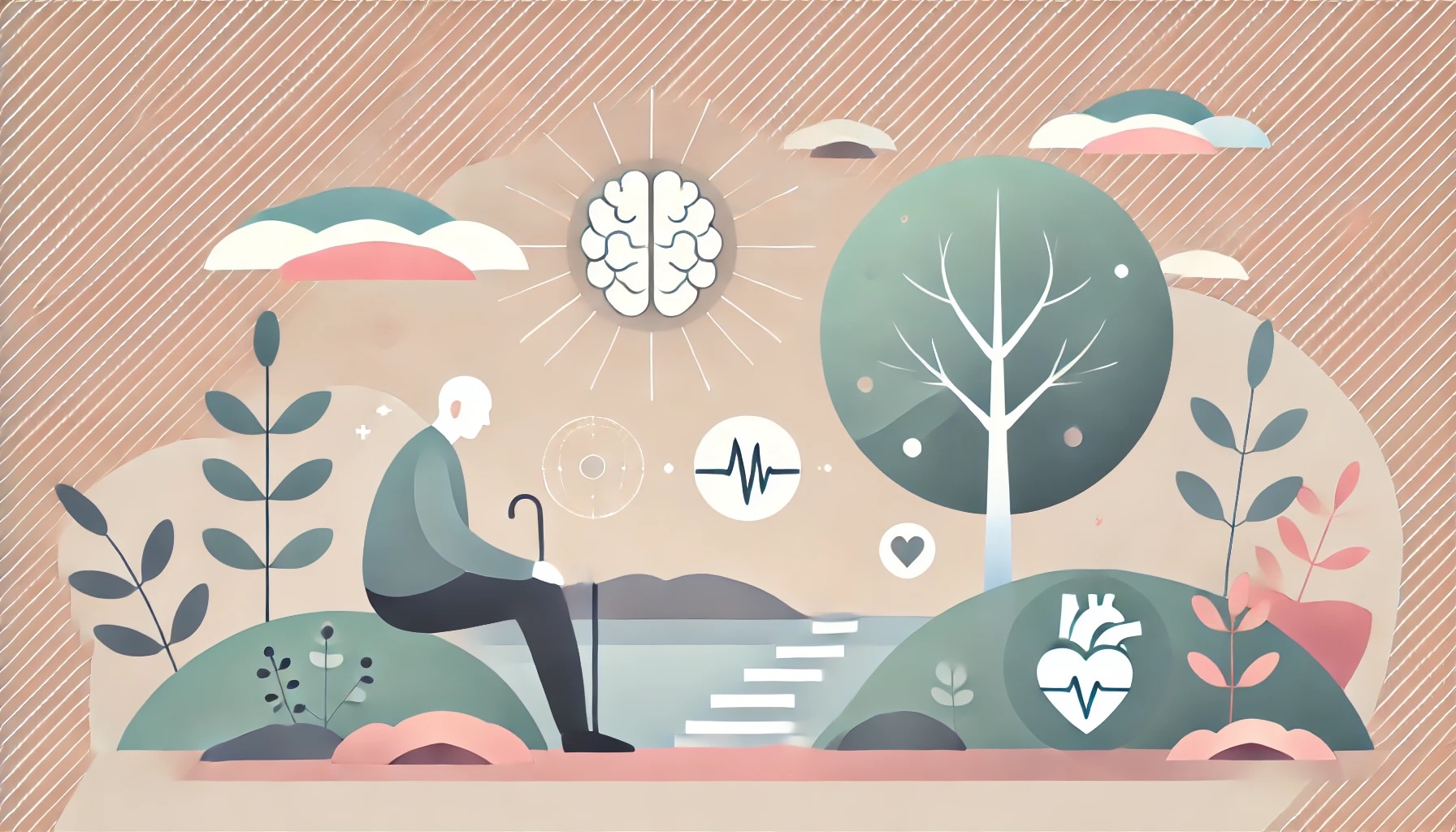With the global trend of population aging, mental health has become an increasingly significant factor in ensuring a high quality of life for older adults. While physical health often takes center stage in discussions on aging, mental well-being is equally critical. A positive mindset not only helps slow the aging process but also enhances happiness and overall health. In this post, we explore the importance of mental health in aging and provide practical tips to help seniors maintain a positive outlook.
Why Is Mental Health Vital in Aging?
1. The Link Between Mental and Physical Health
Mental and physical health are deeply interconnected. Studies have shown that individuals with good mental health are more likely to engage in daily activities, stay active, and reduce their risk of chronic illnesses.
2. Boosting Life Satisfaction
A healthy mind enables older adults to cope with challenges such as loneliness, retirement, and family changes, ultimately improving their overall satisfaction with life.
3. Enhancing Cognitive Function
Mental health plays a significant role in preserving cognitive abilities. Anxiety or depression can lead to memory decline, while a positive mindset helps keep the brain active and resilient.
Common Mental Health Challenges for Older Adults
1. Loneliness and Social Isolation
As they age, many individuals experience reduced social connections due to the loss of a spouse, children moving away, or limited mobility. Social isolation has been linked to depression and other mental health issues.
2. Health Concerns
Chronic illnesses or declining physical abilities often impose psychological burdens, such as uncertainty about the future or fear of losing independence.
3. Loss of Social Roles
Retirement can leave some older adults feeling unproductive or undervalued. This shift in social roles can negatively impact self-esteem and mental health.
4. Life Transitions
Major life changes—like losing loved ones, relocating, or financial adjustments—pose emotional challenges that can affect well-being.
5. Intergenerational Dynamics
Conflicts or value differences between generations can strain family relationships, causing stress and emotional distress for older adults.
How to Maintain a Positive Mindset During Aging
1. Adopt a Healthy Lifestyle
• Regular Exercise: Engaging in moderate aerobic exercises like walking, yoga, or tai chi for at least 150 minutes a week improves both physical and mental health. Endorphins released during exercise help enhance mood and foster a positive outlook.
• Balanced Diet: Nutrient-rich foods, including leafy greens, fruits, nuts, and fish, contribute to emotional well-being by reducing stress and improving mood.
• Quality Sleep: Maintaining a consistent sleep schedule and avoiding stimulants before bedtime are essential for mental clarity and mood stabilization.
2. Build and Maintain Social Connections
• Stay Connected with Family: Regular communication with loved ones, even via phone or video calls, fosters emotional support.
• Participate in Community Activities: Joining interest groups or volunteering helps reduce loneliness and provide a sense of belonging.
• Engage with Younger Generations: Intergenerational activities enhance mutual understanding and enrich relationships.
3. Practice Emotional Management
• Mindfulness Meditation: Mindfulness practices help reduce anxiety by focusing on the present and fostering acceptance.
• Gratitude Journaling: Writing down three things you are grateful for daily boosts optimism and resilience.
• Healthy Emotional Expression: Talking to a trusted friend or engaging in creative outlets, like art, can help process negative emotions.
4. Continue Learning and Growing
• Learning new skills, such as painting, crafting, or using digital devices, boosts confidence and keeps the brain sharp.
• Enrolling in courses or workshops stimulates cognitive function and provides opportunities for social interaction.
5. Seek Professional Support When Needed
Prolonged emotional distress, anxiety, or depression should be addressed with professional counseling or therapy. Mental health professionals can offer tailored strategies for improving well-being.
The Role of Families in Supporting Mental Health
Families play a crucial role in promoting the mental health of older adults:
1. Active Listening: Show patience and empathy when listening to the concerns and needs of older family members.
2. Encouraging Independence: Empower seniors to make decisions and maintain their autonomy, reinforcing their sense of self-worth.
3. Providing Consistent Care: Even brief family gatherings or calls can significantly boost the emotional well-being of older adults.
Mental health is an indispensable aspect of aging. It affects not only the quality of life but also how seniors navigate the transitions of aging. By adopting healthy habits, fostering social connections, managing emotions, and continuing to learn, older adults can maintain a positive mindset and lead fulfilling lives. Family and societal support are equally vital in ensuring their mental well-being.
As we move toward an aging global population, let us work together to create an environment where mental health and happiness are prioritized for all generations.




















